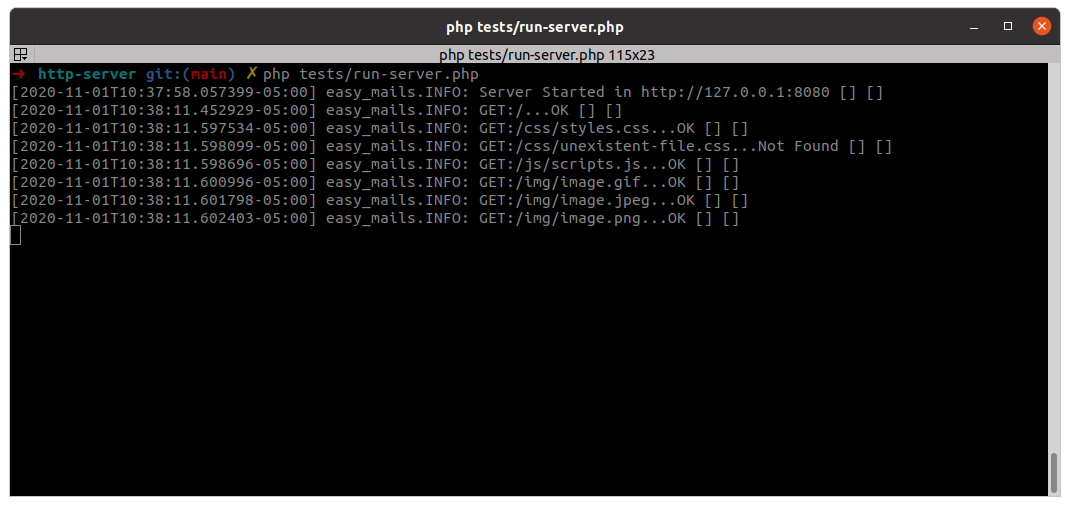A HTTP server written in PHP with help of the Symfony Components.
If you like this project gift us a ⭐.
$ composer require thenlabs/http-server
Create a file with the next example content:
You should change the content according to your needs.
<?php
// run-server.php
require __DIR__.'/vendor/autoload.php';
use ThenLabs\HttpServer\HttpServer;
$config = [
'host' => '127.0.0.1',
'port' => 8080,
'document_root' => __DIR__.'/vendor/thenlabs/http-server/tests/Functional/document_root',
];
$server = new HttpServer($config);
$server->start();
while (true) {
$server->run();
}This file should be executed like that:
$ php run-server.php
Once does it, we can navigate to the URL and we will see the respectively page.
In our example, we are serving the
index.htmlfile which is stored within thetests/document_rootdirectory.
The HttpServer use the Symfony Routing Component for handle the routing, therefore, you can use all the his possibilities.
The next example shown the way to creating a custom route which only can be access by a GET request.
<?php
use Symfony\Component\HttpFoundation\Request;
use Symfony\Component\HttpFoundation\Response;
// ...
$server->get('/article/{id}', function (Request $request, array $parameters): Response {
return new Response("This is the article {$parameters['id']}");
});
// ...Like you can will verify, by default are will shows in the console the result of all server requests.
The logs are created with help of the popular Monolog library.
The next example showns a way to put the logs in a file.
<?php
// ...
use Monolog\Handler\StreamHandler;
// ...
$server->getLogger()->pushHandler(new StreamHandler('/path/to/file.logs'));Start the selenium server.
$ java -jar path/to/selenium-server-standalone-x.y.z.jar
Run PHPUnit.
$ ./vendor/bin/pyramidal

